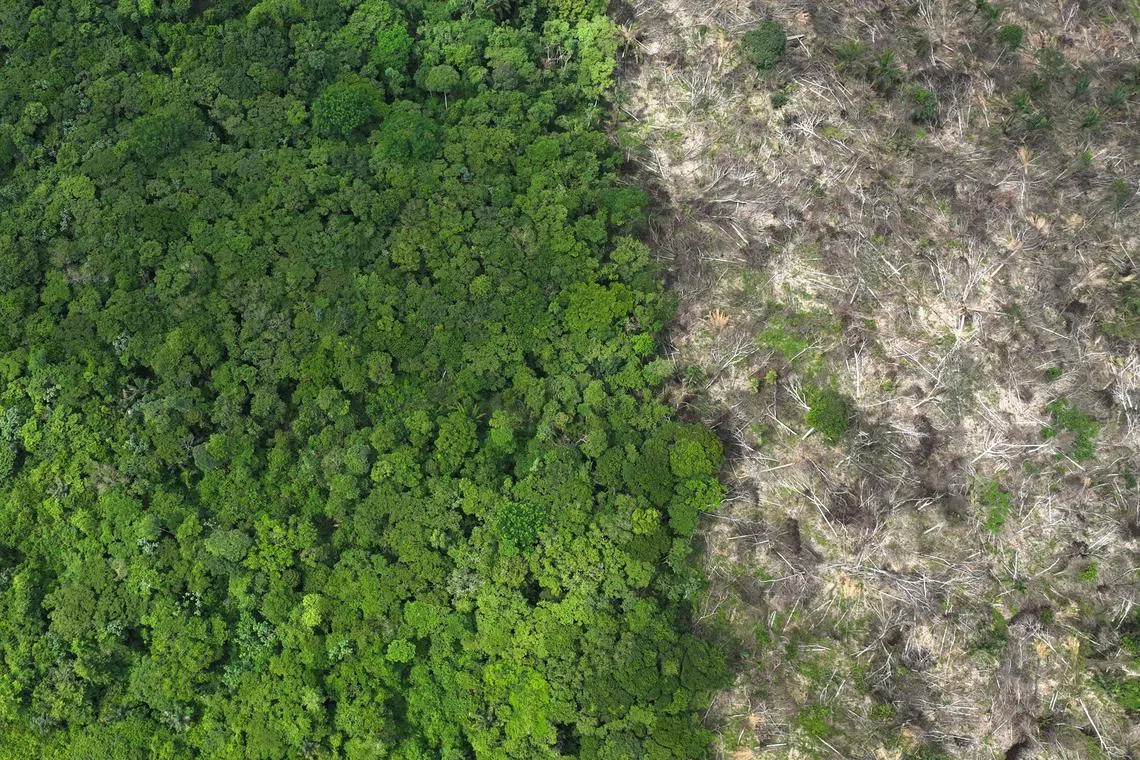Global climate action has failed to halt deforestation, United Nations Environment Programme warns
Sign up now: Get ST's newsletters delivered to your inbox

A deforested area in Brazil on Jan 21. Not tackling deforestation could worsen the climate crisis, poverty, hunger and biodiversity loss.
PHOTO: REUTERS
NAIROBI – Nations are failing to meet a target to stop deforestation, threatening global climate efforts and risking the transition to a green, resilient, and prosperous future, the United Nations Environment Programme (UNEP) said on June 10.
In a report, Raising Ambition, Accelerating Action: Towards Enhanced Nationally Determined Contributions for Forests, the UN agency said many countries are off-track in tackling deforestation, a scenario that could worsen the climate crisis, poverty, hunger and biodiversity loss.
It says greenhouse gas reduction targets that countries submitted between 2017 and 2021 failed to meet the ambitious goal of halting and reversing forest loss by 2030.
The report emphasised that forests are key in regulating climate, air and water quality and are one of nature’s key ways of soaking up and storing carbon dioxide, the main greenhouse gas.
They also provide a home to pollinators for food crops and their destruction threatens the livelihoods of millions of indigenous people.
“After the 2020 goal by world leaders to halve forest loss was not met, we must ensure that the 2030 goal does not meet the same fate,” said Dr Dechen Tsering, acting director of UNEP’s Climate Division, in a statement.
“Climate action plans, due in 2025, need to have ambitious, consistent, detailed, targeted and actionable goals for forest conservation, restoration and sustainable use,” she added.
So far, only eight of the top 20 countries most responsible for the destruction of tropical forests have fully integrated them into their national climate actions, also known as nationally determined contributions, the UNEP report says.
It adds that forests have the potential to contribute to one-third of global greenhouse gas emission reduction efforts, as outlined in the UN Paris Agreement of 2015, the world’s main climate pact.
According to the report, sustained financing towards forest conservation should be accompanied by harmonisation of national climate policies and legislation to accelerate the green transition.
“Implementation of policies that encourage wider sustainable economic practices, for example, bio-economy approaches, can help drive long-term economic change, provide employment and keep forests intact,” the report says.
Providing alternative livelihoods to indigenous and local communities will be key to conserving tropical forests and enhancing their contribution to climate resilience, UNEP said. XINHUA


